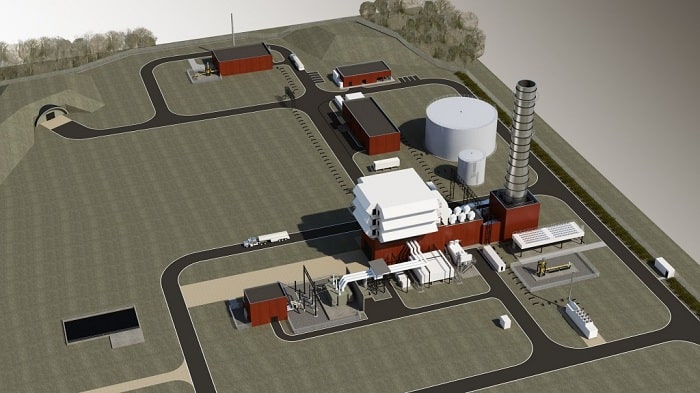Siemens Energy will build a new turnkey gas-fired power plant as special grid-related equipment in Leipheim, southwestern Bavaria, in a contract with LEAG, an energy provider based in eastern Germany. The grid supporting plant will be used at the request of the transmission grid operator Amprion to ensure grid stability in an emergency and therefore ensure a reliable power supply in southern Germany. Emergency situations can occur when there’s a failure of equipment in the grid, like cables. The Leipheim gas-fired power plant will be used exclusively to protect and ensure the reliability of the transmission grid. It’s therefore not available to the free energy market, according to the German Energy Industry Act (Energiewirtschaftsgesetz).
The special grid-related equipment in Leipheim will be able to supply an electrical capacity of up to 300 Megawatts in a maximum period of 30 minutes. Siemens Energy will also manage its operation and maintenance (O&M), initially for five years, in collaboration with LEAG. The plant will be operated entirely from Siemens Energy’s ISO-certified Remote O&M Support Center (ROMSC) in Erlangen, Bavaria. This means that it will be one of the first power plants worldwide to be operated purely digitally from a remote location.
The special grid-related equipment will be installed on the grounds of the former military airbase in Leipheim. Siemens Energy’s scope of supply includes turnkey construction and the O&M agreement as well as an SGT5-4000F gas turbine, an SGen-2000P generator, and the SPPA-T3000 control system. The company will also provide a system for cooling the intake air and a system for injecting fully desalinated water into the gas turbine. These systems will ensure that the plant can generate up to 300 Megawatts in as little as 30 minutes, even in hot weather.
“Leipheim gas fired power plant is an important building-block in the energy transition of power generation” said Karim Amin, Executive Vice President Generation at Siemens Energy. “We’re very pleased that the project development of Leipheim was successful and that we‘re able to help make the security of electricity supply in Germany more robust. An interesting aspect in this project is our digital solution for operating the facility entirely remotely, a real step towards unlocking the power of digitalization.”
Siemens Energy successfully developed the project with Stadtwerke Ulm/Neu-Ulm and STEAG. The approval required for building and operating the plant in accordance with the German Federal Immission Control Act (BImSchG) has been obtained. In February 2021, the Gaskraftwerk Leipheim GmbH & Co. KG (GKL) special-purpose company was transferred to the LEAG energy provider, and GKL was awarded the contract to build the gas-fired power plant in Amprion’s Leipheim location during the bidding process.
“By making this investment, we’re taking responsibility for a secure power supply in southern Germany in our capacity as an experienced power plant operator,” said Hubertus Altmann, LEAG Managing Board Member responsible for power plants. “Like the other two gas turbine power plants operated by LEAG in Thyrow and Ahrensfelde near Berlin, the Leipheim gas-fired power plant will also help stabilize the grid once it’s completed. These types of plants are urgently needed to ensure stable grid operation and ultimately the success of the energy transition.”
Siemens Energy’s modern service center (ROMSC) has obtained the ISO certification 27001 and is able to operate power plants remotely. This permits the plant to be operated locally by a two-person team during the day shift, while control and monitoring are handled from Erlangen. To enable the optimal collaboration with the ROMSC, the local maintenance team is equipped with cutting-edge connected worker technology. Outfitted with a helmet-mounted camera, microphone, and headset, the connected worker can communicate with the remote control center over a secure Internet connection. Modern software solutions that employ speech recognition, artificial intelligence, and augmented reality functions provide additional support. This combination of on-site and remote specialists guarantees that the power plant remains available round the clock.





































